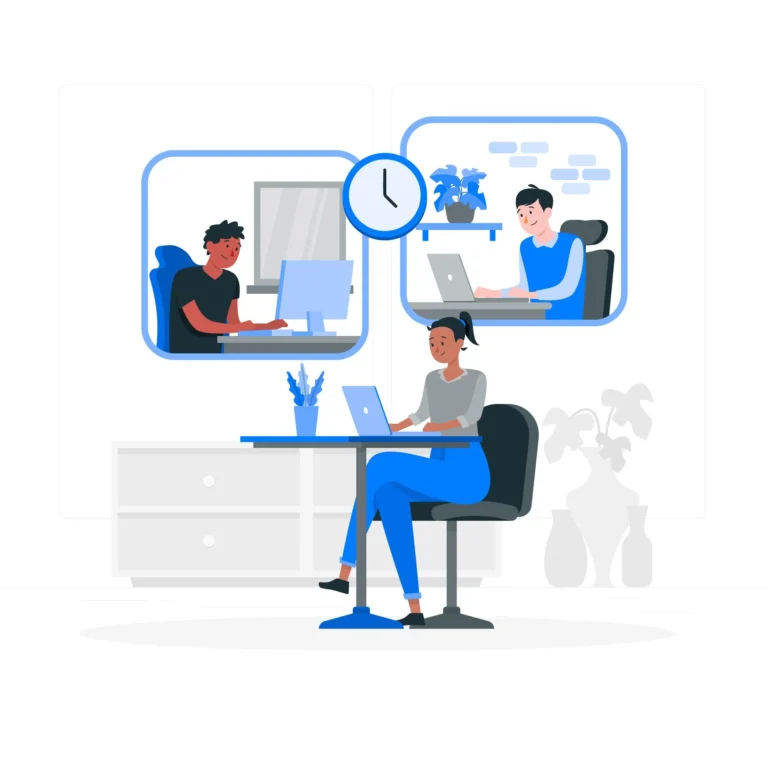Nail It: 11 Remote Part-Time Job Interview Questions & Answers That Wow Recruiters
Discover 11 smart remote part-time job interview questions and how to answer them with confidence. Perfect for flexible job seekers.
Job interviews are more than just a conversation — they are your gateway to new career opportunities. Whether you are a first-time job seeker, a seasoned professional, or someone returning to the workforce, the ability to present yourself confidently and strategically during an interview can determine whether you get the offer or not.
With the right preparation, knowledge of what interviewers are looking for, and strategies to highlight your strengths, you can turn a nerve-wracking experience into a rewarding one.
In today’s competitive job market, employers often receive dozens — if not hundreds — of applications for a single position. Your résumé might get you noticed, but it’s the interview that seals the deal.
The interview is:
A chance to showcase your personality beyond your résumé.
An opportunity to demonstrate problem-solving skills with real-life examples.
A platform to clarify your career goals and how they align with the company’s mission.
Hiring managers are not only looking for qualifications; they’re looking for the right fit. The way you communicate, handle questions, and interact with others can be just as important as your experience.
Many candidates underestimate the power of preparation. Walking into an interview without research or rehearsal can lead to avoidable mistakes. Here’s how to prepare like a pro:
Understand the company’s mission, values, products, and industry trends. This helps you tailor your answers and show that you are genuinely interested.
Example: If the company values innovation, prepare to share a story about a time you introduced a new idea or improved a process.
Highlight the skills and qualifications the employer emphasizes. This allows you to align your responses with the role’s key requirements.
Some questions are classics for a reason:
“Tell me about yourself.”
“Why do you want to work here?”
“What are your strengths and weaknesses?”
“Describe a challenge you’ve faced at work and how you overcame it.”
Rehearsing your answers helps you speak confidently without sounding robotic.
Not all interviews are created equal. Understanding the format can help you adapt your approach.
These require strong body language, eye contact, and a confident handshake.
Here, your tone and clarity matter more than appearance. Smile while you talk — it makes your voice sound warmer and more engaging.
With remote work becoming common, video interviews demand technical preparation. Ensure your internet connection is stable, your background is tidy, and your camera is at eye level.
Multiple interviewers can feel intimidating. Make eye contact with each panel member and address them by name when possible.
Once you’re in the hot seat, it’s time to put preparation into action.
Listen carefully before answering — this shows respect and ensures your responses are relevant.
Use the STAR method (Situation, Task, Action, Result) to structure your answers for behavioral questions.
Show enthusiasm — employers want to hire people who are excited about the opportunity.
Ask thoughtful questions about the role, team, or company culture to demonstrate genuine interest.
Some questions are meant to test your composure, such as:
“Why did you leave your last job?”
“What’s your biggest weakness?”
“Where do you see yourself in five years?”
Tip: Keep answers honest but positive. For weaknesses, mention a skill you’re improving and how you’re working on it. For career goals, focus on growth and contribution rather than job titles.
Many candidates miss a golden opportunity after the interview — the follow-up. Sending a thank-you email within 24 hours leaves a lasting impression.
Your message should:
Express appreciation for the interviewer’s time.
Reiterate your interest in the role.
Highlight one key discussion point from the interview that reinforces your suitability.
“Before anything else, preparation is the key to success.” – Alexander Graham Bell
“Opportunities don’t happen. You create them.” – Chris Grosser
A successful job interview is not about being perfect — it’s about being prepared, authentic, and adaptable. By combining thorough research, strong communication skills, and confident body language, you can stand out in any interview setting.
Whether you’re interviewing for your dream job or testing new career waters, every conversation is a chance to learn and improve. Treat each interview as a stepping stone toward your next big opportunity.

Discover 11 smart remote part-time job interview questions and how to answer them with confidence. Perfect for flexible job seekers.